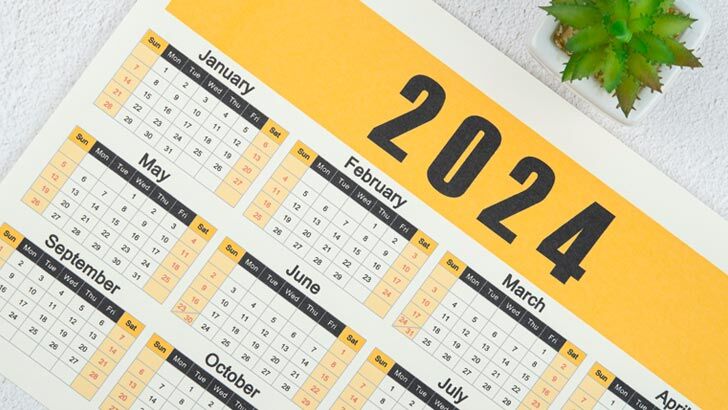How you can achieve your money goals
By Tom Watson
We're already two months into 2024 which means that many of those resolutions set amid the positivity and optimism of the new year will already have fallen by the wayside.
Sound familiar? If it does, there may be some small comfort in knowing that you're not alone.
Research conducted for HCF in 2022 found that of the 80% of Australians who had set resolutions, nearly half (46%) didn't see them through.
A separate survey from YouGov in 2019 found that fewer than one in five people who had made a resolution at the beginning of the year managed to stick to it. Nearly half (44%) achieved some, but not all, of their resolutions, while 19% ditched them altogether.
The good intentions are there though - especially when it comes financial goals.

According to ANZ, between January and December 2023 ANZ and ANZ Plus app users set half a million savings goals. The most common of these related to saving for international travel, buying a home, purchasing a car and setting up an emergency fund.
So how can Australians go about ensuring that these goals become a reality?
"Fundamentally there are three challenges in terms of why people don't succeed at goals. It's really around articulation, progression and completion," explains Mohamed Khalil, head of financial wellbeing, research and design at ANZ.
Read on for six tips to help you set and see your financial goals through.
1. Break goals down into smaller parts
As Khalil notes, one of the biggest issues that many people have is effectively articulating and narrowing in on a goal at the beginning of the process. In this respect, he says, it's important to be clear about what you want.
"We often have very vague ideas around wanting to buy a new car or renovate a home. But it's very difficult for people to clearly define how much it's going to cost and what they will need to do in order to accomplish that," he says.
"So the first step is to spend some time defining the goal clearly. The easiest way to do that is it to break down your goal into smaller goals. For example, if you were going to take a vacation you'd need to think about plane tickets, hotels, dining out, activities and spending money.
"And there's actually research that shows that the more time you spend imagining the future, the more invested you are in it. So as you begin to define and shape that goal, you start to naturally want to do something about it."

2. Keep the focus narrow to start
In the same way that setting a vague financial goal is unlikely to bear fruit in the long run, Khalil suggests that taking on a single goal, rather than multiple goals at once, could be beneficial - at least to start off. He likens it to exercise.
"If you consistently go for a run every day and decide that you want to add some weights to your workout or increase your level of fitness, it's easier to do more. If you're starting from a point where you aren't doing anything at all though, it's better to start with a single focus to build confidence.
"Starting with a big goal or many goals can be quite demotivating, whereas if you're able to rapidly build confidence by demonstrating your ability to meet small goals you can build towards bigger ones.
"That might mean starting by saving small amounts towards a small goal, then saving a larger amount for a slightly bigger goal and then continuing to progress with that until you reach a point at which you begin to understand your own stamina and ability to save."

3. Take advantage of the Fresh Start Effect
Tend to find yourself drawn to the idea of starting a new exercise or financial regime at the start of a new week or month rather than, say, on a random Wednesday?
You're not alone, and there's even a term for it: the Fresh Start Effect. And it can be a powerful motivator when it comes to achieving goals.
"Fundamentally, setting a goal is basically setting an expectation that you're going to shift habits and behaviors," Khalil says.
"And as humans we tend to want to find moments in time that are meaningful to us to shift a habit or behavior. It can be social, like New Years, which we all agree is the start of a new period of time. Or it can be personal, like your birthday, an anniversary, or after you've started a new job.
"These are all liminal moments where you're moving from one state of the world that you're living in to a new state that you'd like to see happen. The challenge is helping people understand that this is quite powerful and can actually make a difference in how much more likely they are to stick to a goal."
It shouldn't end up being an excuse to procrastinate though. Instead, Khalil encourages people to think about the next meaningful point of change in their life and set that as their start date.

4. Monitor your progress
If articulation is the first step on the path towards successfully achieving a goal, the second is all about progression. At this point, Khalil says that one of the biggest challenges is people simply forgetting about their goals, which is why he recommends making a habit of regularly checking in.
"You may have spent the time to work out what you want to do, when you want to do it, how much it will cost to do and what you will get out of it, but we're all very busy, so once you start to get on with your life it's easy to forget about making progress," he says.
"Find a way to regularly monitor the progress you're making against that goal. If you've got digital tools within a banking app that's certainly helpful because you can get reminders and notifications, but so can just setting up a time once a week, once a fortnight or once a month, where you take a few minutes to check in on how you're doing.
"It's a habit that you have to build even if you've made no progress. And that's okay, because then it's just about recalibrating and resetting your expectations."

5. Automate and regulate what you can
One part of progressing financial goals that has been made easier with technology in recent years is having greater control over your money - whether that's automating transfers or fencing off your savings in separate accounts or sub-accounts.
"Anything you can do to either automate or restrict your ability to deviate from your goal is going to be very helpful," says Khalil.
"If you can set up an automatic transfer once your salary comes into your account to save towards a goal, or if you have the ability to round up transactions and have that money targeted toward your goal like you do in the ANZ Plus app - these are ways to make saving mindless and easier.
"Then the second part of this is finding ways to make sure that the money going towards that goal isn't as easily accessible as your everyday spending money."

6. Celebrate your success along the way
"Throughout the process it's not just about you checking in and making sure that those behaviors and automatic processes are working, it's also about having the opportunity to celebrate, because that will keep you motivated," Khalil explains.
"And when you do celebrate, it's actually quite helpful. That's why sharing your goal with family and friends, or whoever you're comfortable doing so with, can be quite motivational."
And if you do manage to achieve whatever goal you've set, be sure to celebrate at that point too, because the feelings of that success could prove motivating for your next goal.
"Finally, when you get to completion, it's not only about being able to execute on the goal, but being able to prove to yourself that you're capable of achieving what you set out to do."
Get stories like this in our newsletters.



